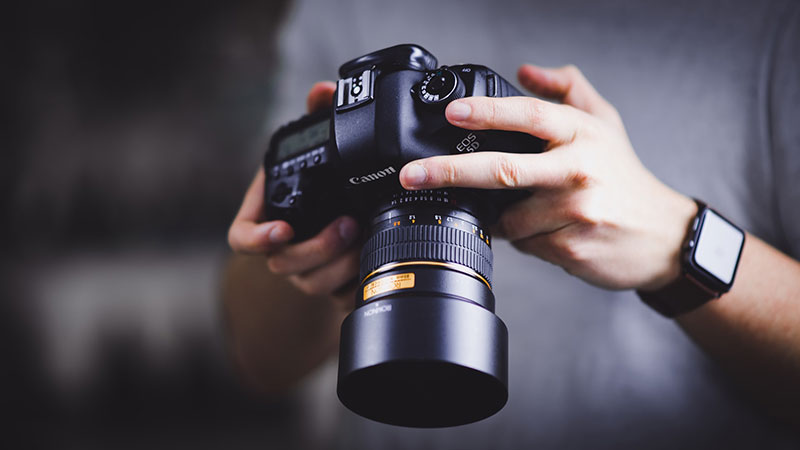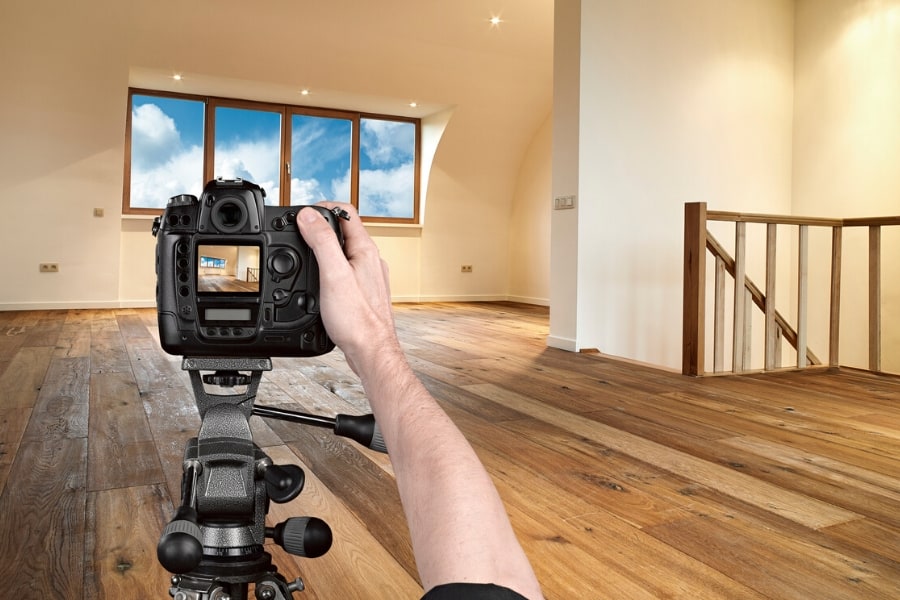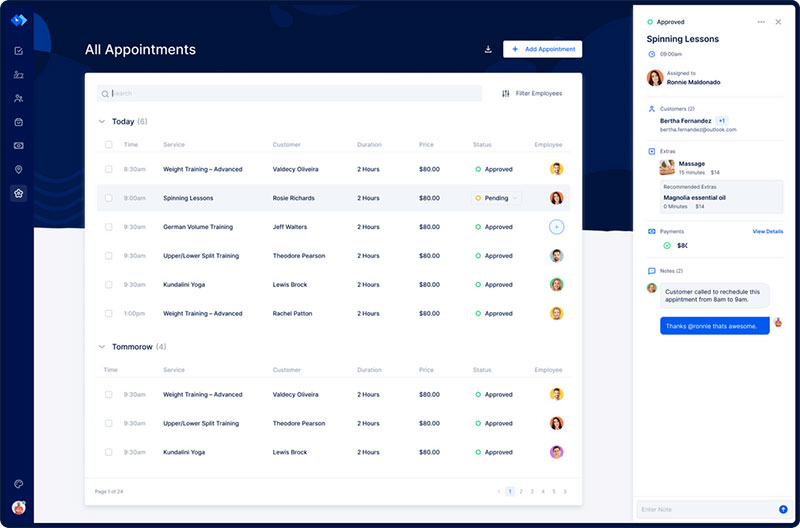In the real estate world, photography is an essential factor. It helps to create a bigger impact on prospective clients.
The real estate photography business comes with a lot of advantages. One is the freedom, as the schedule is more flexible than a 9-6 job.
Working with a DSLR camera, external flashes, and tripod brings great satisfaction.
What’s more, get ready to say goodbye to the crowds. This type of work means avoiding heavy traffic and not rushing to reach the office in time.
However, the real estate photography business also involves professionalism.
It is crucial to prepare the mind and heart to provide deliverable photographs. Each photo should highlight the main goal of the real estate building.
The following will show more ideas on how to start in this industry.
Before going through different phases of real estate photography, it is vital to know everything about it. Make sure to register it properly and that it is legally compliant.
Start With A Concrete Plan
Everything should start with a plan. But don’t just go with the “plan” in your mind.
It should be well thought out and organized. First, create a short-term goal, then a long-term goal afterward.
Think about a specific niche to enter into to create a particular audience. Ask questions such as:
- Is high-end property one of my specialties?
- Can I meet the high demand of this industry despite its higher pay?
- Do I want to go with hotel photography instead?
- Or is Airbnb photography my niche?
The first thing to keep in mind is the photographer’s niche and passion. Although a photographer can work in several niches, it would be easier to build a brand with a single field.
It will also make the brand stand out from the competitors.
Before starting a business, ensure to study the local market and the competitors. Is the niche saturated in the area you are planning to establish a business?
Another thing to contemplate is the target audience. Photographers can choose between agents, owners, or work on both.
Establish the Photography Brand By Forming a Legal Entity
Business structure is a priority for every photographer. The structure influences income reporting, taxes, and organizational purposes.
Make sure to use the type of structure that best fits the needs of the photography business. This will of course depend on the photographer’s needs and preferences.
Here are some real estate photography business structures:
1. Limited Liability Company (LLC)
This structure is one of the most important for building a real estate photography business.
Without it, bankruptcy or lawsuit can claim a photographer’s home and savings account. It protects the business owner from personal liability.
Thus opening an LLC in different locations can be different; for instance, for opening an LLC in Texas, you should get an appointment with the agent to have a professional approach.
2. Partnership
This is only applicable for businesses that involve two or more people.
3. Sole Proprietorship
In this type of structure, the ownership belongs to only one person.
When it comes to local regulations regarding business, the business owner should comply.
Permits and licenses are crucial in establishing this type of business. So, before starting a business, it is important to always check the local regulations.
A real estate photography contract should include the rights of the clients and the expectations of the services. Do not forget to mention the property owner of the business.
Credit Card And Business Bank Account
Having a business bank account and credit card protects personal assets.
Business Bank Account
Before starting, open new bank accounts that are separate from any personal accounts.
This prevents business owners from using personal funds for business matters. It also makes accounting and tax filing easier.
Business Credit Card
In businesses, a credit card is useful in many ways. However, make sure to keep track of any expenses incurred on a credit card.
Be wise when using it. Irresponsible use can lead to bankruptcy if owners can’t pay their dues in time.
Having said that, it can be a great asset for the business. Later on, it can raise the company’s credit limit and improve the credit history.
This makes it easier to raise money and attracts more investment.
Have The Right Equipment

When starting a real estate photography business, having the correct gear is essential.
The good news is that these are not too expensive or rare. The basic equipment a photographer needs is a camera. Obviously.
It doesn’t need to be high-end. A basic camera will do if the business is only starting.
But, if possible, it is worth investing in a better camera. This allows for longer use and a higher-quality photo.
What’s really important is the subject. In real estate photography, this may include exterior property images and interior rooms.
Other essential tools are a solid tripod and a wide-angle lens. These will do most of the things needed for creative real estate photography.
As regards lenses, it has to be wide-angle or ultra-wide.
With these two items, any camera body will get the job done. The result will be eye-catching photographs.
As long as the wide-angle lens’ design is for a crop-sensor camera, then they are good to go.
Another item that would be a great investment is a basic wireless flash. It improves the background and lighting quality.
Use this together with the umbrella and softbox to serve as a diffuser.
Sell Your Photography Skills
It is now time to reach out to clients. The first thing to do is to create a portfolio and work on the business cards.
But focusing on these strategies alone might not produce enough clients. Nowadays, the competition is very fierce.
So, photographers and agencies need to find several ways to market themselves. If the first strategy doesn’t work, try other ways such as browsing real estate listing websites.
One thing to keep in mind is to put extra effort into the portfolio while asking a fair price for the service.
The price should be set according to the skills of the photographer. So, it is crucial to train and enhance skills to set a better price and gain more clients.
Initially, getting clients may involve cold-calling and cold-emailing. Don’t forget to include links to the portfolio in every email.
Make it personal to entice customers to read the message and lead them to the call-to-action.
Start A Business Website

Right now, everyone is on the internet. Without a website, it is challenging to reach people.
Having a website is the best way to promote the service the photographer offers. So, why not build a website, get your name out there, and connect with your online community?
Through the web page, prospective customers can view photos and sample projects. These help to give an idea of what the photographer could offer them.
This could be a challenge if the photographer is new to real estate photography. Without photos, how can these photographers showcase their skills?
One way to create a portfolio is by shooting your own place. Or have a photoshoot at a friend’s house or room and do it for free.
Don’t forget to use Lightroom or Photoshop to polish the photos. Use them to highlight the most important part of a house or room.
However, remember that editing doesn’t mean lots of filters and unnecessary background. Keep it simple and make sure to show the main highlight of the room.
The portfolio is where all the best projects sit. Aim for quality, instead of quantity.
No matter how many project photos you put in a portfolio, clients will look at your productions. Pick 10-15 pictures to show, and choose the best quality photos.
Use Social Media Platforms
The best way to market a business or skill is to spread the word on social media platforms.
Use LinkedIn, Instagram, Facebook, Tiktok, and more to reach more clients. Make sure to keep the information simple and informative.
When creating social media content, don’t add unnecessary information. Then, avoid sales-y content that might drive people away from the page.
The goal is to attract more followers. Getting more followers means more prospective clients.
Hotel brands and real estate agencies may see that the business page has a lot of likes and followers. This could make them curious about what the photographer can offer them.
This can help the business to gain more customers in the long run.
Being active on social media enables the photographer to learn about the target market. Receiving more offers also makes the business known to potential customers.
Social media makes it easier to receive feedback too. This helps the business to grow.
Aim To Have Repeat Customers
Instead of focusing only on new clients, aim to keep old customers and treat them well.
Offering discounts now and then can make them happy. They may even refer the real estate photography business to their friends.
Another thing to focus on is the delivery of a quality service.
Always submit the projects on time and have good communication with the clients. Never allow one of the clients to become dissatisfied with their project.
If a single client is having a problem with the project, settle it right away. Follow up with them and ask what you can do to make things right.
Once the client feels satisfied with the project, don’t forget to ask for an honest or positive review. Adding positive reviews to the business page will help to attract more clients.
Reach Out To Real Estate Agents

If the business is still new, then talking with local real estate agents is a great idea. Show the best shots of different locations from featured homes.
Now, start to contact several agents. Scouting local open houses or other listings will be a great highlight of real estate photos.
One of the things real estate photographers should not do is offer the service for free. When offering the service to clients, photographers should be 100% sure of their work.
Real estate agents look for photos where the properties are eye-catching and enticing. Stack portfolios with the best shots, and have them ready for possible clients in the future.
Is a Real Estate Photography Business Right For You?
If real estate photography is the photographer’s niche and focus, then this might be the right choice. But it still depends on the person’s goals and resources.
First of all, being flexible on turnaround time is very important. Clients have time frames that they need to stick to.
Every real estate photographer should be willing to be flexible. They must be willing to take a chance to look for new customers or business opportunities.
Running a real estate photography business is a freelance occupation. Clients come and go, and this type of business is a niche profession.
Although that’s true, there is the possibility of booking high-value clients. These clients offer real estate photographers better compensation.
The best fit is someone with photography skills and an eye for architectural details. If an individual has contacts in the real estate industry, then that could be a great advantage.
However, a real estate photography business does require reliable transportation. This will allow them to transport gear and get to the photoshoot destination.
Get more bookings with the right tool for the job
Staying organized has never been easier.
You can now manage your business and grow your brand with a single, powerful software that keeps all of your appointments in line, your clients organized and your business booming.
Trafft is the perfect service scheduling software for business owners who need to streamline their booking experience both for their staff and their clients.
Trafft handles everything for you, even sending automated email or SMS reminders to your clients. No-shows? Not anymore!
The Trafft booking software adapts to different industries for a blissful online booking experience and employee management.
Want to know more? Check out Trafft’s awesome features to see what you are missing.
How Much To Charge?
This is the trickiest question when the real estate photography business is new. It should be the first thing to think about before looking for real clients.
If it’s hard to know the price, it would be best to ask the local photography community. Find them on Facebook Groups, MeetUp, or other social media platforms.
Be specific in asking. The price varies from one niche to another.
The things to consider are the time spent taking videos and photos, the job scope, and the area or value of the property itself. It also depends on the photographers’ location.
In general, it costs $100-200 or $500-1000 for a quick job. For a more lucrative project, it costs from hundred dollars to thousand dollars.
Of course, the price also depends on the photographer’s skills and experience. Photographers can hone their skills, reach the top, and earn more money.
The price doesn’t depend on real estate photography alone. Here are the factors for consideration.
- The home’s area/size
- The client’s status – whether you are working with a local or prominent real estate company
- The turnaround time
- Preparation time
- Travel expenses
- Editing time
What To Expect In A Typical Day Of A Real Estate Photography Business
Being in a real estate photography business also involves out-in-the-field photoshoots. So expect a more flexible schedule, as running a business and shooting photos can take a lot of time.
Before the photoshoot starts, it is very important to meet with the clients.
Find out what their expectations are for the project. Ask for their ideas and any special requests.
Here is a checklist to work through with clients:
- Property surveys before the photoshoots begin. This helps photographers decide what time of day to take the exterior shots.
They also get an idea of the amount of lighting required.
- Knowing the perfect angle for each shot, and learning how to stage the area.
- Checking and editing the photos.
- Sharing the edited photos with the clients.
- Messaging clients to know whether they received the images or not.
- The re-shooting and re-editing images.
- Doing administrative work by entering the information, then paying bills/payrolls.
- Last but not least, working on marketing and networking. This is one of the crucial things to work on to find more clients.
Do this by checking in with previous clients. Also, attend realtors’ meetings and work with real estate agents and businesses.
How and Where Can You Learn Real Estate Photography?

Being a real estate photographer takes a lot of practice and skill.
Future real estate photographers can take courses on platforms like Coursera or Udemy. These help individuals learn basic techniques and skills for real estate photography.
As noted, real estate photography is a very specific niche. So knowing the business aspects of this profession is essential.
Practicing and connecting with people with the same passion can help to hone skills. Practice using the camera and equipment while experimenting with different angles.
Join seminars and meetings to work with different photographers and learn more about real estate photography.
It requires an eye for detail, lighting, and architecture. Having these essential skills will lessen the need for editing.
Strong communication skills are crucial to create a masterpiece. Being able to work under pressure is a commendable quality to meet deadlines.
Another way to learn real estate photography is to work as a photographer’s assistant. Doing this makes it easier to learn the basics.
Teaming up with people with years of experience in this career can make a difference. Collaborating with them can also help to connect you with potential clients.
The Benefits Of A Real Estate Photography Business
With real estate photography, both the house exterior and interior are important. According to the National Association of Realtors, 90% of home buyers look for homes online.
With professional photos, a property can be on the market for up to 89 days. Other properties stay on the market for over 125 days.
Try to branch into property photography specialization. It will open up more opportunities.
Sticking with a specific niche can help photographers to earn a decent income. However, as with other professions, they can face a lot of challenges.
Real estate agents need professional photographers who can create a visualization of the homes and properties they sell. Moreover, buyers usually look at the properties’ aesthetics.
But before entering this field, do market research to gauge the market saturation. It is also a great idea to open satellite offices in other locations.
FAQs about starting a real estate photography business
1. What equipment do I need to start a real estate photography business?
You will need a camera, lenses, tripod, and lighting gear to launch a real estate photography business. The best option for high-quality images is often a DSLR camera and a wide-angle lens can capture more of the space in a single shot. To keep the camera steady, a strong tripod is required, and lighting equipment can help balance the exposure of the pictures.
2. What type of camera is best for real estate photography?
Because it has a larger sensor and can catch more light and detail, a full-frame DSLR camera is the best choice for real estate photography. The Nikon D850 and the Canon EOS 5D Mark IV are two cameras that are frequently used by real estate photographers.
3. How do I determine my pricing for real estate photography services?
Investigating your local market and rivals is the greatest way to decide on your real estate photography pricing. Take into account the number of images you’ll sell, the duration of each shoot, and any other services provided, including photo editing. You might also think of charging a flat price per house or a cost per image.
4. How do I market my real estate photography business?
Social media, internet directories, and networking with real estate agents and brokers are all effective ways to market your real estate photography business. Another way to draw in new clients is by setting up a professional website with a portfolio of your work and client endorsements.
5. What software do I need to edit real estate photos?
Popular software programs for retouching real estate images include Adobe Lightroom and Photoshop. Lightroom makes batch editing simple and has quick exposure and color adjustments. For more intricate changes, including deleting undesired items from a photo or fusing numerous photographs for an HDR effect, Photoshop is helpful.
6. What are the legal requirements for starting a real estate photography business?
You might need to register your business with your state or local government and receive any relevant licenses or permits before starting a real estate photography business. In the event of mishaps or damage during a shoot, liability insurance is also crucial.
7. What should I include in a real estate photography contract?
The scope of the project, the number of images to be delivered, and the cost of the service should all be specified in a real estate photography contract. It should also provide details on any cancellation procedures, liability disclaimers, and photo usage rights.
8. How do I handle challenging lighting situations when taking real estate photos?
While capturing real estate shots, it’s crucial to use a tripod to keep the camera steady and to shoot in RAW format so that you may have more control over exposure during post-processing. A flash or strobe can also be used to equalize the exposure and produce more uniform lighting in the space.
9. How do I create a portfolio of my real estate photography work?
By choosing your best pictures and arranging them in an appealing layout, such a printed portfolio or a website, you may create a portfolio of your real estate photography work. To show off your adaptability and knowledge, you should highlight a variety of objects, perspectives, and lighting conditions.
10. What are some tips for working with real estate agents and homeowners?
Being professional, respectful, and explicit about your offerings and expectations is crucial when working with real estate agents and homeowners. Be on time and equipped with your tools and any required documents. To make sure the customer is satisfied with the outcomes, it can also be beneficial to give them a quick preview of the images during the shoot.
Before Starting A Real Estate Photography Business
In this profession, wise planning and preparation are crucial. This article provides key points about the basics of a real estate photography business.
Yet these are only small details compared to what there is to learn in the following articles. Start investing time and money to begin this type of business.
Study more about this field and improve your skills. Improved photography and editing skills can lead to more projects in the future.
If you enjoyed reading this article on how to start a real estate photography business, you should also read this one about real estate photography marketing.
We also wrote articles about similar subjects like becoming an event photographer, how to become a licensed photographer, social media marketing for photographers, real estate photography contract, appointment scheduling for real estate agents, how to get your photography noticed and photography mood board.










